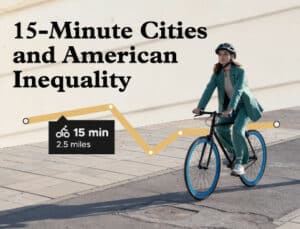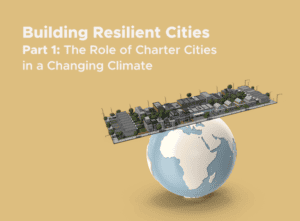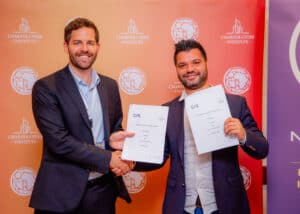
15-Minute Cities and American Inequality: The Relationship Between Walkability and Social Inclusivity
Over the past few years, the 15-minute city has emerged as a contentious urban planning paradigm. The concept, which proposes organizing cities into clusters of dense neighborhoods where all daily needs can be reach within a 15-minute walk or bike ride, is criticized as a segregationist and impractical approach to urbanism. Its detractors fear that it will worsen social inequality and reduce economic benefits. In this paper, we challenge these criticisms. We argue that 15-minute cities are an effective urban policy to improve social equality and spur economic development. We conceptually argue that 15-minute cities embody consensus policies among urban planner, and therefore, they should not be treated skeptically. We also discuss how 15-minute cities are beneficial to low-income residents. To illustrate our arguments, we qualitatively compare New York City and Washington, DC’s impoverished neighborhoods. We show that the relatively more walkable neighborhoods of NYC are better for the poor than DC’s relatively less walkable neighborhoods.









